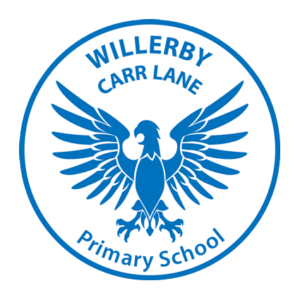The School Day
Class doors open for pupil entry 8:40am
Class doors shut for start of the school day 8:50am
Lunchtime 12:00pm – 1:00pm
End of the school day – 3:30pm
School Weekly Total Hours: 34.10
Drop off and Pick up Arrangements
Location of Drop-off and Collection points
Morning drop off
Children should arrive in school between 8.40am and 8.50am making use of the external site entrances from Carr Lane, Bellfield and Ashgate. The staff car park is available for drop off, for the breakfast club only, until 8.30am at which point the barrier will be down and entry to the car park is restricted. External pupil access doors are locked at 8.50am and late arrivals must enter and sign in via the main school office.
Parents/carers are not allowed to enter any part of the school building apart from the main office area.
To ensure site security, parents must drop off and leave the school site promptly.
When children arrive in school on either a scooter or a bike they must dismount and walk with these whilst on the school site and ensure they are safely stowed before entering the building.
There is no law that states what age children may travel to and from school unsupervised. Parents and carers should make their decision based on their child’s maturity, ability and the safety and distance of the route to school.
Afternoon Collection
External pedestrian site entrances from Carr Lane, Bellfield and Ashgate are open from 3.20pm; the staff car park is closed. Lessons finish at 3:30pm and children will be dismissed from their designated exit after this.
School collects information from parents about how children are leaving school at the end of the day. This information is stored in each classroom and is used at the end of the day to dismiss children. Children will only be allowed to leave school in the way that parents have specified.
Parents must inform the class teacher or school office if there are changes to the usual collection arrangements – for example, if a child is going to a friend’s house after school.
Children will only be allowed to leave school unaccompanied if parents have given permission for them to do so.
To ensure site security, parents must drop off and leave the school site promptly. They must not congregate on site or by the school gates.
Disputes over drop offs and pick-ups
In a situation where there are disputes around who should be picking up or dropping off a child due to disagreements between a number of adults who have parental responsibility or care for the child, schools will use the guidance produced by the Department for Education (DfE) on understanding and dealing with issues relating to parental responsibility (DfE, 2018). School will abide by any Court orders that are shared with them.
Late Collections
In the event of children being collected late school will:
• contact parents or carers
• call emergency contacts if parents and carers cannot be reached so an authorised adult can come and collect the child
• keep records of late collections.
• If parents and carers have authorised someone else to collect the child, they may not always be aware the child is being collected late, so we will keep them informed if this happens.
• In instances of persistent lateness school will contact parents or carers outlining their concerns. This will also be recorded as a safeguarding concern using the school’s safeguarding procedures.
• If school has ongoing concerns about a child’s welfare, we may make a referral to children’s social care so that the family can receive support.
If nobody comes to collect a child
• If parents, carers or other authorised people are not able to collect the child and have arranged for someone else to come instead, the parents or carers must notify the school as soon as possible.
Identification will be required when the person comes to collect the child.
• If nobody comes to collect the child, we will make every effort to contact the parents, carers or authorised person whose details have been supplied. If we are unable to get hold of any of the
authorised people by 5pm we will apply child protection procedures and contact children’s social care.
• Until the child is collected, they will stay at school in the care of two members of staff.
• School staff and volunteers will never:
• take the child home with them
• transport the child home
• go in search of parents/carers
The Designated Safeguarding Lead will make a full written report of the incident which will be added to the child’s safeguarding file. If appropriate, this report will also be shared with children’s social care.
If an unauthorised person comes to collect the child
• School will not allow children to go with any unauthorised person without first getting permission from parents or carers.
• If a child’s social worker is planning to collect them from school, this should be agreed in advance by the child’s parents and carers.
• If an unauthorised person arrives to collect the child, school will contact the child’s legal guardian. If the school is unable to make contact with the child’s legal guardian, or the legal guardian does not give their permission, we will explain that they are unable to release the child to anyone else without authorisation from the child’s legal guardian.
• If an unauthorised person refuses to leave the premises, becomes aggressive or violent or attempts an unauthorised removal of the child then it may be necessary to contact the police. This will be recorded as a safeguarding concern using the school’s usual safeguarding procedures.
If the person collecting the child does not appear to be able to provide safe care:
There may be times when the school is worried that the adult collecting a child is under the influence of alcohol or drugs, or their behaviour otherwise suggests that they may not be in a fit state to safely look after the child.
In this case, school will:
• contact another family member or authorised person to collect the child
• record the incident as a potential safeguarding concern
Repeated instances of an adult appearing unfit to provide safe care will be discussed with children’s social care.
If school has immediate concerns about a child’s welfare, and an alternative family member or authorised person is not available to collect the child, the school has a duty to prioritise the welfare and safety of the child. We will attempt to keep the child on the premises until we have received guidance or support from children’s social care or the police on what action to take.
If, despite the school’s efforts the parent insists on taking the child, then we will:
• contact the police
• make a safeguarding referral to children’s social care
• keep a full written report of the incident.
If an unauthorised person comes to collect the child
Only the pedestrian site entrance from Carr Lane is open. The staff car park is available for picking up from the Out of School Club only after 4.40pm. Parents and carers must collect their child from the entrance/ exit associated with each club. Club managers are responsible for visually handing over children at the end of a club and following school safeguarding procedures.




